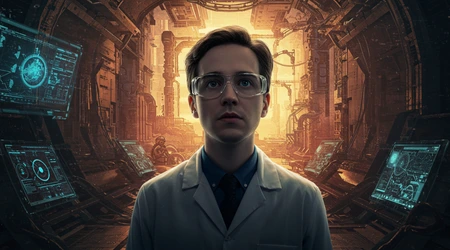Is Time Travel Philosophically Possible?

The question Is Time Travel Philosophically Possible transcends mere science fiction; it assaults the very foundations of logic, causality, and free will that underpin our understanding of the universe.
Anúncios
While physicists debate the existence of closed timelike curves (CTCs) as mathematical solutions in general relativity, philosophers focus on the paradoxes that undermine the entire concept of temporal journeys. These paradoxes suggest that backward time travel is not just technologically difficult, but logically incoherent.
This intellectual exploration dives deep into the primary philosophical contradictions that arise when we assume past intervention is possible.
We challenge the notion of a mutable past and explore the powerful, universe-stabilizing constraints suggested by theoretical physics. Ultimately, understanding whether Is Time Travel Philosophically Possible forces us to redefine what we mean by ‘reality’ and ‘choice.’
What are the Logical Obstacles to Changing the Past?
The central philosophical challenge to backward time travel lies in the inherent conflict between action and historical fact.
Why Does the Grandfather Paradox Present a Logical Contradiction?
The infamous Grandfather Paradox posits a traveler returning to the past and preventing their own existence (e.g., by preventing their grandparents from meeting). If they succeed, they could never have been born.
If the traveler was never born, they could not have travelled back in time to commit the act. This creates a circular, self-refuting proposition: an event that simultaneously requires and forbids its own occurrence.
No event can be both true and false in the same context; this logical contradiction is a major pillar against the possibility of time travel. The paradox highlights how backward travel fundamentally violates the law of non-contradiction, showing Is Time Travel Philosophically Possible is problematic.
++ Can We Ever Achieve a Theory of Everything?
How Does the ‘No Destination’ Argument Rule Out Travel?
A powerful argument suggests that there is literally “nowhen” to go when attempting to travel to a fixed past. The past is defined by its unchangeable, fixed nature.
If the past is an immutable record, then any attempt to change it is simply an attempt to alter something that is, by definition, unalterable. You can only move through time forward, experiencing moments as they become fixed facts.
The historical timeline is a single, determinate sequence of events. Sending matter backward implies an accessibility that contradicts the very notion of a finished, determinate past.

How Does Physics Attempt to Resolve the Paradoxes?
Many theoretical physicists, acknowledging the logical issues, have proposed solutions that maintain causality even within spacetime featuring CTCs.
What is the Novikov Self-Consistency Principle?
Russian physicist Igor Novikov formulated the self-consistency principle, stating that any event that would lead to a paradox has a probability of zero. Essentially, the universe self-corrects.
Also read: How Philosophy Influences Modern Physics
How Does the Principle Constrain Free Will?
If you travel to the past and try to kill your grandfather, the principle dictates that you will inevitably fail. Your gun might jam, you might trip, or your grandfather might simply evade you by sheer chance.
This implies that the time traveler has no true free will regarding paradox-creating actions. All actions in the past must already be consistent with the future from which the traveler originated. This suggests that Is Time Travel Philosophically Possible only if free will is abandoned near CTCs.
Statistic: The Novikov principle, developed in the 1980s, remains a cornerstone of physics discussions involving CTCs, suggesting that self-consistent loops are the only physically plausible outcome in such spacetimes.
Read more: Mathematical Universe Hypothesis (Max Tegmark)
Can a Time Traveller Become Part of the Timeline?
The Novikov principle forces the time traveler’s actions into a closed causal loop. The traveler cannot change history but must be a part of the history that already happened.
Example 1 (Original): A traveler goes back in time to stop a fire from burning down their childhood library. Upon arrival, they accidentally knock over an oil lamp the very action that caused the fire in the first place. Their attempt to alter the past paradoxically becomes the origin of the event they sought to prevent.
This closed loop or “Bootstrap Paradox” means information or objects can exist without a clear origin, having been sent back in time to create themselves.
Are There Any Non-Paradoxical Models of Time Travel?
Philosophers and physicists have sought models where backward movement in time does not result in the logical inconsistencies of the Grandfather Paradox.
Why Does the Many-Worlds Interpretation Offer a Solution?
The Many-Worlds Interpretation (MWI) of quantum mechanics offers a clean, if extreme, solution to the paradox problem.
How Does Branching Reality Avoid Contradiction?
Under MWI, travelling to the past and performing an action like killing your grandfather simply creates a new, branching reality. You are no longer in your original timeline.
You kill the grandfather of this new reality, but your own timeline, and thus your own birth, remain completely unaffected in the source universe. The contradiction is resolved by making the past mutable, but only in a separate universe.
Example 2 (Original): A time traveler takes the blueprints for the hydrogen bomb back to the 1920s to give humanity an early advantage.
Instead of paradox, a new universe branch is created where the H-bomb exists decades earlier, but the traveler’s home reality remains the original one where they only succeeded in creating a copy-timeline.
This means Is Time Travel Philosophically Possible? Yes, but only if it involves non-interventionist travel to alternate pasts, not one’s own fixed past.
Is Travel to an Alternate Past Still “Time Travel”?
This approach essentially redefines time travel as “multiverse travel” to a time-displaced, alternate reality. The traveler never truly changes their past.
This distinction is crucial: if you only visit a copy, you have not violated the logical consistency of your own universe’s timeline. You have side-stepped the contradiction entirely.
The Ultimate Philosophical Reckoning
The debate over time travel forces a final philosophical reckoning regarding the nature of time itself.
What is the Difference Between Eternalism and Presentism?
Two major metaphysical views of time fundamentally affect whether time travel is even conceivable: Presentism and Eternalism.
| Metaphysical View | Description of Time | Time Travel Compatibility |
| Presentism | Only the present moment is real. The past is gone; the future does not exist. | Backward travel is impossible—there is no past to visit. |
| Eternalism | Past, present, and future are all equally real (like points in space). | Travel is conceivable—all points in time are destinations. |
Why Does Eternalism Provide the Best Hope?
If Eternalism is true, then time is like a block of spacetime all moments exist permanently. A time machine would simply be a device for moving from one point on the block to another.
This makes the question of Is Time Travel Philosophically Possible less about contradiction and more about physics providing the path through the block. This block universe view supports the Novikov Principle’s closed loops.
Analogia: If time is a flowing river (Presentism), you cannot travel backward. If time is a solidified block of ice (Eternalism), you can move to any point on the block, provided you have the right tools.
Do the Laws of Nature Protect Causality?
Physicists like Stephen Hawking proposed the Chronology Protection Conjecture, suggesting that the universe’s fundamental laws conspire to prevent backward time travel.
This conjecture is a philosophical statement wrapped in physics, asserting that if time travel is inconsistent with reality, reality itself will forbid the creation of CTCs. In this view, nature acts as a supreme logical enforcer.
Conclusion: The Endurance of Paradox
The journey into Is Time Travel Philosophically Possible reveals a profound clash between human imagination and the fundamental constraints of logic.
The Grandfather Paradox, the Bootstrap Paradox, and the challenge to free will remain formidable philosophical barriers.
While physical theories like Eternalism and the Many-Worlds Interpretation offer escape routes, they often redefine the concept, making it less about altering one’s own history and more about observing fixed realities or creating new ones.
Ultimately, time travel to change your own past seems definitively logically impossible. The universe guards its history fiercely, proving that some things remain beyond even the most advanced technology.
What fixed point in history would you be most tempted, yet logically unable, to alter if time travel were physically realized? Share your thoughts on the paradoxes in the comments below!
Frequently Asked Questions (FAQ)
Q: Does Einstein’s Relativity allow for time travel?
A: Einstein’s general relativity mathematically allows for the existence of Closed Timelike Curves (CTCs), which are paths through spacetime that loop back to their starting point.
However, the physical conditions required to create a CTC (like infinite cosmic strings or exotic matter) are considered highly impractical, if not impossible, to achieve. This is where physics and the question of Is Time Travel Philosophically Possible diverge.
Q: What is the Bootstrap Paradox?
A: Also known as the Ontological Paradox, the Bootstrap Paradox involves an item or information that exists in a time loop without a true origin.
For example, a music sheet is copied and sent back to the past, where the composer finds it, copies it, and sends it back to the future, completing the loop. The music was never composed; it merely exists in the loop.
Q: If the Novikov Principle is true, does that mean humans have no free will?
A: Not entirely, but it certainly restricts it. The principle suggests that within the vicinity of a time machine (a CTC), your free will is constrained only to actions that are already self-consistent with the established future. Outside that temporal loop, traditional concepts of free will would presumably still apply.
